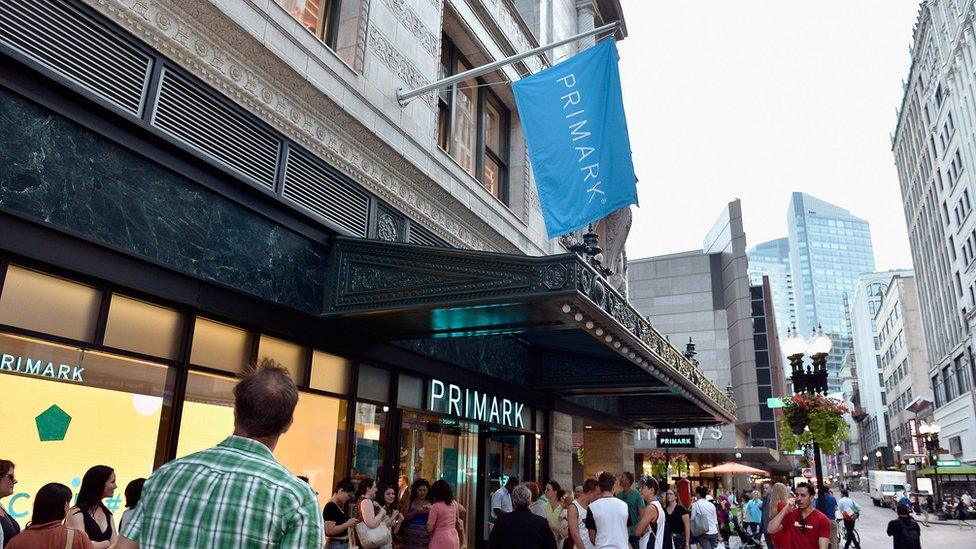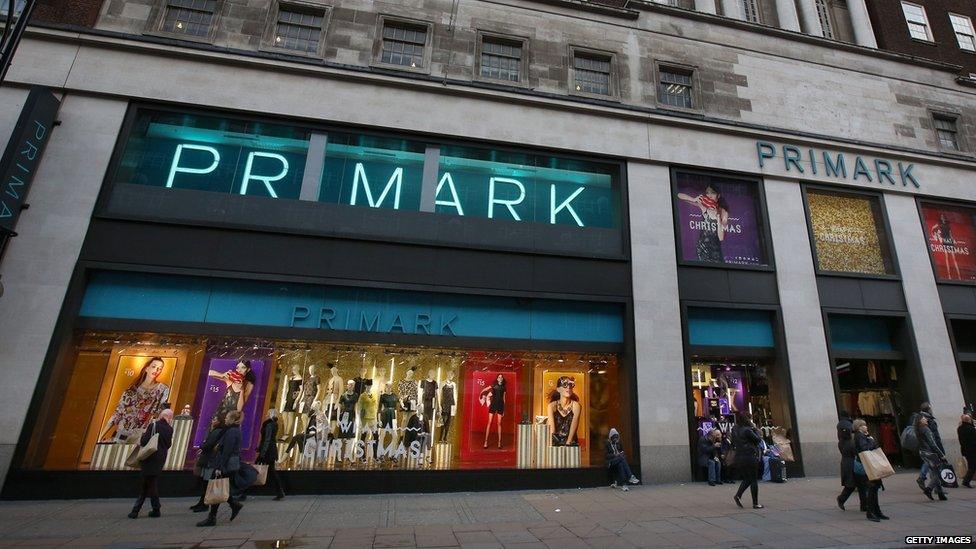Primark owner ABF reports fall in profits
- Published

Primark opened a flagship store in Madrid last month
Annual profits at Primark owner Associated British Foods have fallen by 30% following falls in food prices and significant currency movements.
A 1% rise in like-for-like sales at the fashion chain failed to offset problems at its food and agriculture businesses.
Pre-tax profit was £717m for the year to 12 September, down from £1.02bn a year earlier, while group revenue fell 1% to £12.8bn.
Chief executive George Weston called it a strong operational performance.
Operating profit for the sugar business fell 77% to £43m as EU sugar prices continued to fall. The company has cut costs as a response.
Profits were up 6% to £285m in its grocery business, which includes Ovaline Twinings, Allied Bakeries and Dorset Cereals.
ABF bought the cereal maker in 2014 and said it had "a strong consumer brand with exciting growth potential".
The ingredients division posted an 85% jump in profit to £76m, while the figure for the agriculture unit rose 20% to £60m.

Primark opened its first US store in Boston this year
Primark expands
At Primark, operating profit rose 2% to £673m on revenues 8% higher at £5.3bn.
Retail analyst Nick Bubb said ABF blamed a decline in Primark's "impressive" operating margin from 13.4% to 12.6% on exceptionally good trading in the previous year and that stock markdowns had returned to more normal levels in the past 12 months.
Primark expanded its selling space by almost 1m sq ft, bringing the total to 11.2m sq ft across 293 stores, including its first US outlet in Boston.
There are 164 Primark stores in the UK, 40 in Spain, 36 in Ireland, and 19 in Germany.
A further 1.5m sq ft of space will open in this financial year, with seven new stores in the US, three in France and its first Italian store. A new 133,000 sq ft store in Madrid - its largest in Spain - opened last month.

The interior of Primark's new flagship store in Madrid
The company will pay a final dividend of 25p, a 3% rise in the total dividend.
Shares fell 1% to £34.01 in morning trading, valuing the company at £27bn.
Keith Bowman, equity analyst at Hargreaves Lansdown, said the launch of Primark in the US would provide further long-term growth.
"Costs have been removed at the group's more difficult sugar business, ongoing cash generation has allowed a reduction in group net debt, while a progressive dividend policy is still being pursued," he said.
- Published7 September 2015
